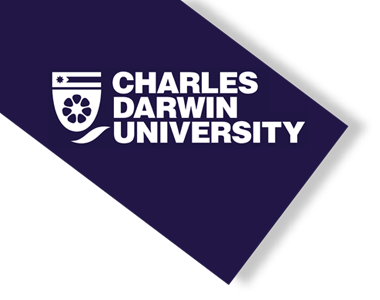Bachelor of Engineering Science
Charles Darwin University
About
The Bachelor of Engineering Science will provide you with the necessary scientific knowledge that underpins your engineering discipline, followed by a specialist knowledge of the theory and practice of civil and structural, electrical and electronics, and mechanical engineering.
The course will help you to develop skills for the planning and execution of engineering projects.
The course specifically offers extensive hands-on practical experience, which will help you in your future career as an engineering technologist.
Essential engineering skills including innovation, creativity, management and teamwork are also features of the course.
This course was developed in consultation with and is supported by industry leaders.
You graduate with a sound foundation of engineering knowledge which directly aligns with international industry requirements.
You can combine this course with the two-year Master of Engineering as an accredited pathway towards becoming a professional engineer.
This pathway is similar to engineering programs offered in Europe and is an alternative to the traditional four-year Bachelor of Engineering Honours course.
As a civil and structural engineering technologist, you will be able to work with other engineers and technologists on the design and maintenance of structures for the modern world.
Key areas include water resources, roads and traffic, bridges and marine structures.
Your studies will focus on developing sustainable and ethical civil and structural solutions in areas such as structural engineering, water and its uses and the principles of sustainability.
As an engineering technologist in the electrical and electronics industry, you will be able to work together with engineers and technologists on the design, automation and control of the devices which make modern life convenient.
You are involved in electronics, telecommunications, biomedical applications and power generation and distribution, including renewable energy.
As a mechanical engineering technologist, you will be able to collaborate with other engineers and technologists in the design and build of large and small devices which improve transportation and provide affordable manufacturing and production solutions.
Key areas include mechatronics, robotics, biomechanical applications, aeroplanes, cars, pumps and pipelines.
Structure
Common Units(2 units) - 20cp
Common units totalling 20 credit points as detailed below.
CUC107
CUC106
Common Units
Core Units(12 units) - 110cp
Compulsory Core units totalling 110 credit points as detailed below.
ENG151 Statics ENG174 Electrical Engineering SMA101 Mathematics 1A SMA102 Mathematics 1B ENG252 Dynamics PMO201 Project Management SMA209 Mathematics 2A SMA211 Mathematics 2B ENG303 Research Project ENG304 Design Project ENG305 Safety, Risk and Reliability IPM300 Industrial Experience (0 credit points) ENG142 Concepts of Chemical Engineering (final offering 2019) has been removed as a core unit from 2020 - see transition arrangements below.
Specialist Elective(7-8 units) - 70-80cp
Units totalling 70-80 credit points selected from one of the specialist streams.
Chemical Engineering (80 credit points) (no longer available for entry from 2020) SCH101 Chemical Concepts SCH102 Organic and Inorganic Chemistry ENG246 Process Analysis ENG247 Fluid and Thermodynamics ENG248 Unit Operations ENG341 Separation Process Principles ENG364 Materials Engineering ENG342 Instrumentation and Control (new title 2018)
Civil and Structural Engineering (70 credit points) ENG212 Mechanics of Solids ENG215 Surveying and Construction ENG247 Fluid and Thermodynamics ENG267 Hydraulics and Soil Mechanics ENG368 Steel and Concrete Structures ENG311 Geomechanics ENG364 Materials Engineering
Electrical and Electronics Engineering (80 credit points) ENG221 Analogue Electronics ENG223 Electrical Circuit Analysis ENG224 Electrical Machines and Power Systems ENG227 Electromagnetics and Communication Technology HIT235 Digital Systems and Computer Architecture ENG325 Systems Modelling and Control (title changed from Systems Modelling in 2016) HIT332 Embedded and Mobile Systems HIT365 C Programming
Mechanical Engineering (70 credit points) ENG212 Mechanics of Solids ENG235 Manufacturing ENG247 Fluid and Thermodynamics ENG325 Systems Modelling and Control (title changed from Systems Modelling in 2016) ENG338 Machine Design Principles ENG364 Materials Engineering ENG342 Instrumentation and Control (new title 2018)
Electives(3-4 units) - 30-40cp
Units totalling 30 - 40 credit points at 100 – 300 level selected from undergraduate units offered by the University. Students may also take elective units at an equivalent level via cross institutional enrolment. Students should contact the School to confirm their elective unit selection if unsure if their unit is appropriate. Students who have completed ENG142 Concepts of Chemical Engineering as a core unit prior to 2020 will count this as one of their elective units. Suggested electives for students who have not completed ENG142 include: ECO107 Economics and the Modern Business Enterprise (replaces ECO105 from S2 2020) ENV103 Environmental Issues HIT137 Software Now HIT164 Computing Fundamentals LAW105 Introduction to Business law MAN105 Introduction to Management SCH104 Introductory Chemistry A SPH141 Concepts of Physics
- 240
Total Credit Points
Entry requirements
Admission requirements are met by one of the following: Successful completion of the Northern Territory Certificate of Education and Training (or equivalent) and the awarding of an Australian Tertiary Admissions Rank (ATAR) of at least 60*. Successful completion of a national qualification at Certificate IV level or higher. Successful completion of at least 0.5 year of full-time study (or equivalent) of a higher education degree/diploma. Overseas secondary or tertiary qualifications considered equivalent to the above Australian qualifications. Attainment of a STAT Multiple Choice score of 135 (or a score of 145 if prior to May 2010). Successful completion of the Tertiary Enabling Program, the Preparation for Tertiary Success courses, or other recognised tertiary preparation course. Submission of an acceptable personal competencies statement and/or employment experience. * After any applicable adjustment factors have been applied.
Institution
